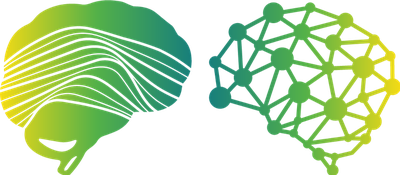
Duration
July 2022 to June 2026
Contact

Dr. Sandra Diaz
Scientific Lead of the Simulation and Data Lab Neuroscience PI in Helmholtz Information Program 1, Topic 1 & Joint Lab SMHB
Building 16.15 / Room R 2002
+49 2461/61-8913
E-MaileBRAIN-Health
eBRAIN-Health: Actionable Multilevel Health Data
eBRAIN-Health will deliver a distributed research platform for modeling and simulating complex neurobiological phenomena of human brain function and dysfunction in a data protection compliant environment. It will provide thousands of multilevel virtual brains - the eBRAIN-Health “twins" from patients and healthy human controls for research and innovation. Brain data from multiple sources will be pre-processed and annotated with a common data model - such that they all will relate to common spatial and temporal reference frameworks - eBRAIN-Health. The platform thus offers a next generation clinical research infrastructure - compliant with the EU General Data Protection Regulations (GDPR) and creates an open yet protected space for groundbreaking digital health innovation by the research infrastructure communities comprising academia and the private sector. eBRAIN-Health utilizes neurodegenerative disorder data as a demonstration case. The project will integrate large, complex datasets and computational simulations from diverse academic medical research projects to advance our understanding of the underlying causes of these diseases, enabling identification of new potential treatment options. Once built, eBRAIN-Health systems can subsequently be applied as a benchmark/model for many other disease areas. The eBRAIN-Health infrastructure is designed to respect the sensitive nature of medical data, while making these data accessible for further research. Combined with access to high-performance computational power, the systems deployed in the project will allow generation of meaningful algorithms, models and simulations. The platform will be attractive not only to the academic research community but to the private sector. Start-ups and established drug developers can use the infrastructure for early digital/in-silico screening of new approaches, stress-testing them against models of real-world data. This can accelerate development of successful treatments or save resources through early identification of failures. From a disease management perspective, the predictive power provided by these models and simulations will help improve clinical care, e.g., by identifying which intervention is best suited for a particular individual.
The JSC is involved by providing access to supercomputing facilities and advanced HPC technology. In particular, the JSC is involved tasks responsible for "Deployment and integration of simulation and analytics tools on HPC" and "Machine learning workflows for simulated output analysis". The first task will deploy required components at the Jülich Supercomputing Centre to ensure execution of simulation and analytics tools. Integration will be done in agreement with security concept for data protection and with user accessibility scheme designed by the consortium, taking into account site specific policies, and linked to pipeline for reproducible execution at scale using DataLad software. The second task will implement and deploy machine learning algorithms to analyse the TVB simulated outputs of the “Digital Twin”. This will provide the user community of eBRAIN-Health the ability to study the relationships in the simulated functional traces of the output of different instances of the model. This will support the community in generating new hypotheses about common mechanisms. The workflows developed in this task will be made flexible and extendable by using the Learning to Learn framework from the EBRAINS infrastructure. These workflows will be designed to be highly scalable on HPC. This task will work closely together with other parts of the project to ensure that the output from the designed models is easy to integrate into these workflows.
